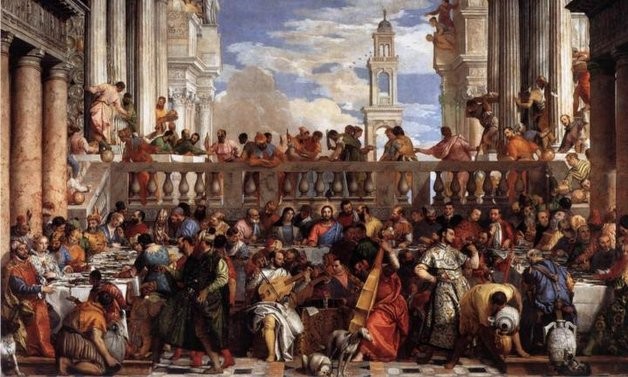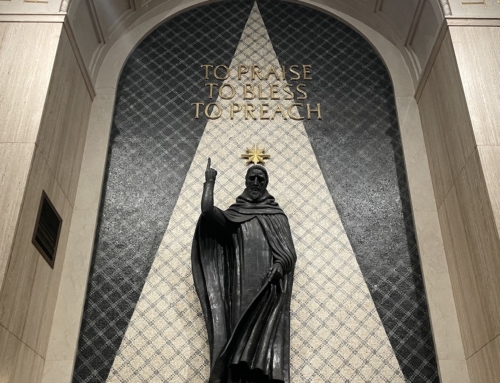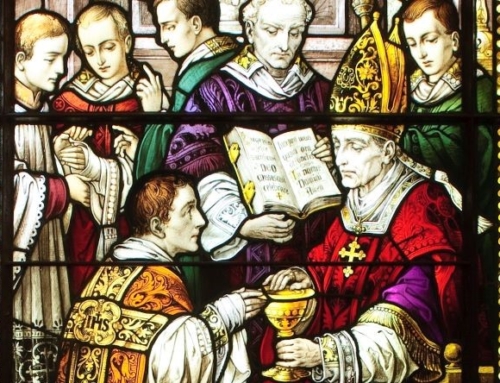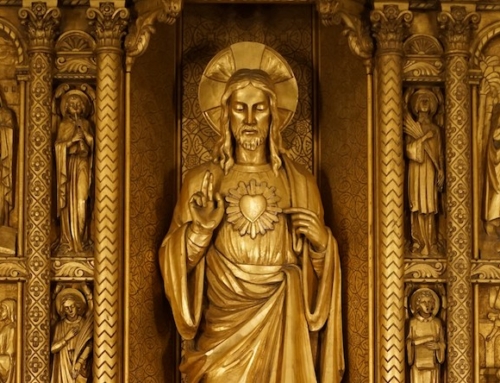We love, because he first loved us. (1 Jn. 4:19)
In a post published on Thursday of last week, I attempted to respond to an article written by Br. Justin Hannegan regarding the nature of religious life and discernment. Mindful that my response only partially answered Br. Justin’s piece, I’d like to draw out further the rich dynamics of Christ’s movement in the hearts of those seeking His will in their lives.
I think it bears repeating here that Br. Justin is right to insist upon proposing religious life in all its stark grandeur as a state of life categorically higher in the order of perfection. Yet, while this is true, it must be counterbalanced and grounded by a perhaps more fundamental dynamic of God’s dealings with men and women: “We love, because he first loved us” (1 Jn. 4:19). The fact remains that we are only given the strength to embark upon and commit to any vocation by virtue of the grace of God that has been poured into our hearts.
God’s grace heals, elevates, empowers, and perfects our wounded natures such that we can endeavor to achieve arduous supernatural things. This applies across the spectrum of our Christian lives with an inexorable pull that ends in our heavenly home. The beatitude for which we are made, the vision of God in heaven, is a pure gift and crowns the end of a life marked from start to finish by God’s gratuitous embrace. Both religious life and Christian marriage set before us goods for which we are ill equipped by our own meager resources. Thus, regardless of how either religious life or marriage is proposed, the first place in our thinking must be given to the grace of God. Before we are choosers, we are beggars. In the drama of Christian vocation, the real protagonist is the beggar: Christ, who by his grace begs for our hearts, and we, who beg in return that this grace might attain its destiny. Pope Francis, speaking about the mission of evangelization, has written something that I think applies equally to discernment: “Though it is true that this mission demands great generosity on our part, it would be wrong to see it as a heroic individual undertaking, for it is first and foremost the Lord’s work, surpassing anything which we can see and understand” (EG 12). Thus, in our thinking and speaking about vocation, grace must assume the spotlight; only then can we begin to speak about our subsequent response.
To this, I’d like to add one further qualification. The grace of God is not bestowed on all individuals in a uniform way. To see this, a two-step elucidation is necessary. First, in discerning the nature of God’s love for mankind, St. Thomas Aquinas explains that we must affirm that God loves all equally. The insight is profound: God is unchanging, eternal, one, and perfect: “Every good endowment and every perfect gift is from above, coming down from the Father of lights with whom there is no variation or shadow due to change” (James 1:17). In his dealings with men, God loves all by one, simple, creative gaze. Thus, we cannot attribute any variability or gradations to this ineffable and wise willing: “He loves all things by an act of the will that is one, simple, and always the same” (Summa Theologiae I q. 20, a. 3). We take solace in a certain equality in the divine dealings with men and women: “He administers all things with a like wisdom and goodness” (ad 1um).
But St. Thomas goes on to make a further point, namely that God wills different individual goods to each of his creatures, and therefore we must speak of a real variety in the divine economy: “God loves some things more than others” since God sometimes wills a “greater good for one than for another”(ST I q. 20, a. 3). Perhaps the classic example is the grace of Mary’s Immaculate Conception. In His unsearchable and infinitely wise providence, God willed that one of His creatures enjoy the fruits of Christ’s redemption in a truly majestic manner, as a fitting and gratuitous participation in His salvific work. The logic of this peculiarity plays out marvelously in the variety of the Mystical Body. St. Therese is particularly eloquent on this point:
“Jesus deigned to teach me this mystery. He set before me the book of nature; I understood how all the flowers He has created are beautiful, how the splendor of the rose and the whiteness of the Lily do not take away the perfume of the little violet or the delightful simplicity of the daisy… He willed to create great souls comparable to lilies and roses, but He has created smaller ones and these must be content to be daisies or violets destined to give joy to God’s glances when He looks down at His feet. Perfection consists in doing His will, in being what He wills us to be.”
A theology of Christian vocation thus takes into account the diversity of lives to which we are called, a trajectory set for us by the One who fashions the very fabric of our hearts and who sets the course for their holy desiring. With this high calling, we cannot cower behind a language of desire that remains at the surface. Rather, the real drama of vocation plunges to the core of God’s provident designs poured into every human heart and welling up unto eternity.
✠
Image: Paolo Veronese, The Marriage at Cana







